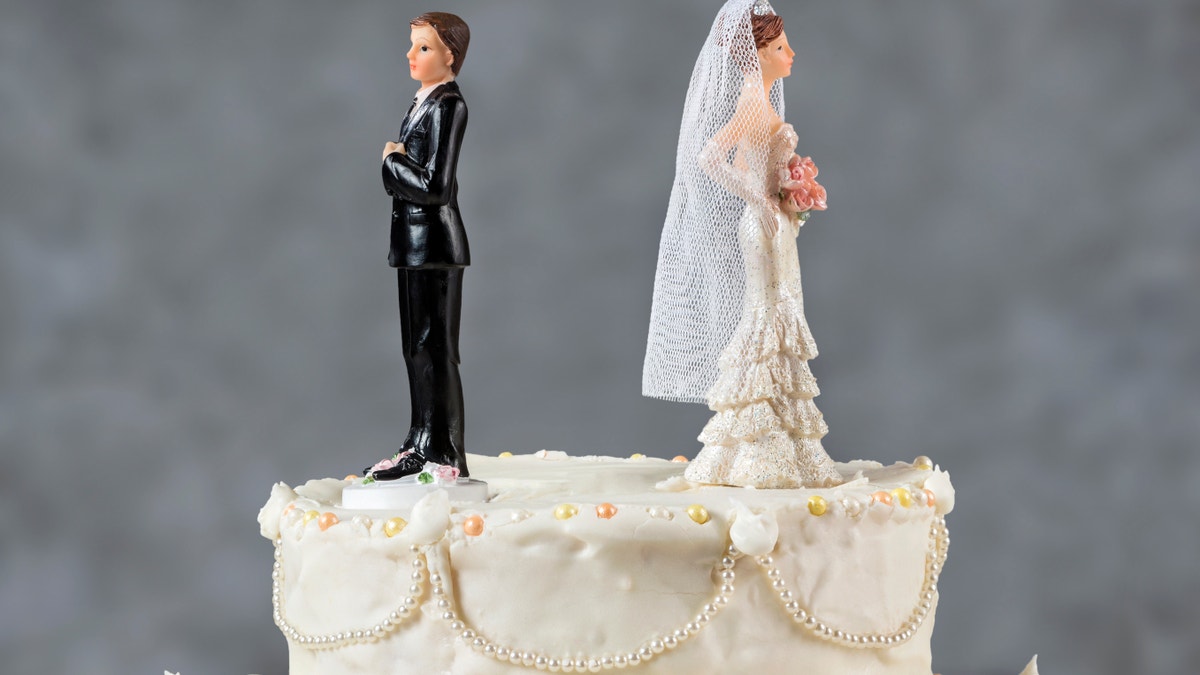
Wedding cake spouses turning their backs to each other for emerging problems (mofles)
Two years ago, my wife hurt me worse than she ever had before. Her big offense: She said something that wasn’t very nice.
My doctor had prescribed a new medication for a chronic illness, and it caused me to have some dramatic mood swings at first. I didn’t realize it was happening though. What was going on inside my head seemed normal, including the negative feelings.
One morning, I felt increasingly irritable and started snapping at Raquel over every minor thing that irritated me.
“What’s wrong with you? You’re acting really weird.”
“I don’t know. The doctor told me the drug could affect my mood. I wonder if it’s the medication.”
“Sure,” she said. “Blame everything on the medication again.”
This was a genuinely unkind thing to say. I had been going through medication changes for years and the side effects really had made life more difficult. It sounded like she was accusing me of faking the struggle.
All of a sudden I felt an irrational surge of wild, uncontrollable hurt.
“That is the meanest, most spiteful thing you have ever said to me,” I said, as my voice got louder and I started getting choked up.
“Your response is totally over-the-top,” she said, but I wasn’t having it.
I kept harping about it and getting frustrated until she finally apologized for saying something that wasn’t nice. It didn’t help. I was still offended so I stormed out the house to do yard work. Fortunately, while I was out there, my mood gradually normalized and I realized what had happened. I also realized how well Raquel had handled it.
Raquel could’ve groveled and begged for forgiveness. She could’ve blamed herself for my feelings and promised she’d never do anything like that again. Instead, she apologized for her small part and left my feelings up to me. A lot of us need to follow her example.
There are probably people in your life who get deeply offended with you, and it’s not because of a temporary side effect of a prescription drug. It's a cycle in your relationship.
They get hurt and then they sulk or shout you down. Before you know it, you're feeling guilty for things you haven't even done and you're apologizing. They’re right and you’re wrong. There's no middle ground. It’s the only way you can survive the confrontation.
Before you end up in another conflict with a person like that, remember that you're not responsible for what’s going on inside of someone else – not any more than Raquel was responsible for what was going on inside of me when I was having a reaction to a drug.
Here’s what you’re responsible for: If you’ve done something that’s hurtful, you need to own your part – even if it’s a small part – and apologize for that. After that, move on. You don’t have to keep repeating your apology, apologize for things you didn’t do, or apologize (again) for things that happened in the past.
Romans 12:18 says, “If possible, so far as it depends on you, live peaceably with all.” That’s true, but remember that there’s a difference between making peace and allowing someone to hold you hostage emotionally.
Making peace usually requires conflict first, and if you’re dealing with someone who’s easily offended, it requires resistance. I guarantee that won’t sit well with the other person and they may punish you for it.
As hard as the consequences of resistance may be for you, they’re better than feeling guilty for emotions that aren’t your responsibility.








































